Anthony Albanese bid to end carbon wars between Labor and Morrison government
Anthony Albanese has moved to end the energy and climate wars by abandoning the failed NEG and Clean Energy Target.
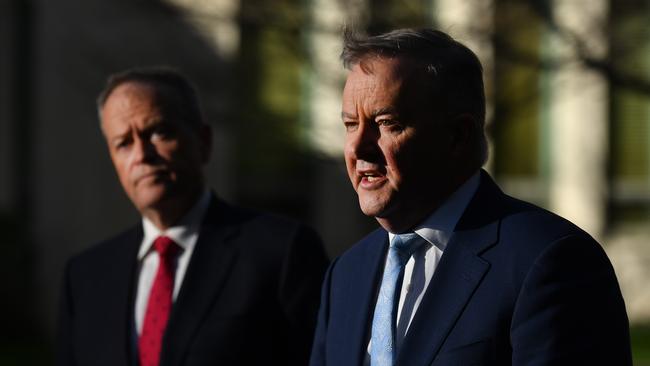
Anthony Albanese has moved to end the energy and climate wars by abandoning the failed National Energy Guarantee and Clean Energy Target, in a bid to strike a bipartisan agreement with Scott Morrison and support investment in new power generation.
The Opposition Leader on Wednesday will endorse the Prime Minister’s technology investment road map as the platform to deliver long-lasting energy policy but warns any new national plan must accommodate higher emissions reduction targets under a Labor government.
In a letter to Mr Morrison, Mr Albanese said the parties, which have been engulfed in internal division over energy policy for more than a decade, may clash on emissions targets but that should not stand in the way of a national energy framework.
“We are not calling for a return of the NEG or a Clean Energy Target or any other specific model,” Mr Albanese wrote.
“However, to ensure the framework is enduring in the context of future scientific advice it must be scalable to different emission reduction targets by future governments.”
In a bid to unshackle Labor from the Kevin Rudd and Bill Shorten years, Mr Albanese will back carbon capture and storage technologies for clean coal projects and urge Mr Morrison to use the economic crisis sparked by COVID-19 as an opportunity to “deliver the leadership Australian business and families are crying out for”.
Mr Albanese said the government’s technology road map could guide “where we are going as a country” but didn’t answer the question of “how we get there”.
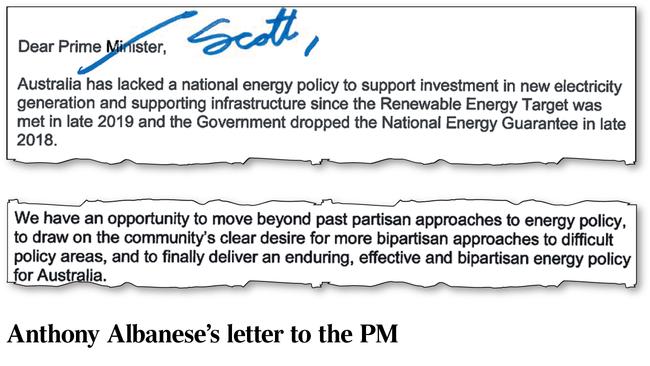
He argued that a new era of co-operation between the major parties could “deliver on the promise of your draft technology road map, as well as the jobs and investment we desperately need”.
“Labor will support the development and use of carbon capture and storage methodologies for the creation of Australian carbon credit units to be available for emission reduction fund auctions and the offset market,” he wrote.
“It is my sincere hope that you carefully consider and accept this genuine offer to work together in the national interest.”
The Australian understands Labor’s support for CCS would extend to clean coal technology, which backs calls from rogue Labor frontbencher Joel Fitzgibbon urging colleagues to adopt stronger language on energy policy. Mr Fitzgibbon, the opposition resources spokesman, has been pushing Labor to agree to a “political settlement” on the issue of climate change and ditch attempts to wedge the government.
Mr Albanese, who will deliver a speech on science and the COVID-19 economic recovery at the National Press Club on Wednesday, told Mr Morrison there was “much to admire” in the government’s draft technology road map. The technology investment road map, which will anchor the government’s long-term emissions reduction strategy, is expected to be finalised ahead of the October 6 budget.
Mr Albanese said Labor was not “naive about the challenges of achieving bipartisan agreement on energy policy”.
“That is why I am proposing a specific framework for any future discussions as well as outlining aspects of the approach Labor is willing to take in any future negotiations,” he said.
While Labor remains opposed to the government’s Emission Reduction Fund “on the grounds it is an inappropriate use of taxpayer funds”, it would respect all contracts under the fund, including future CCS agreements.
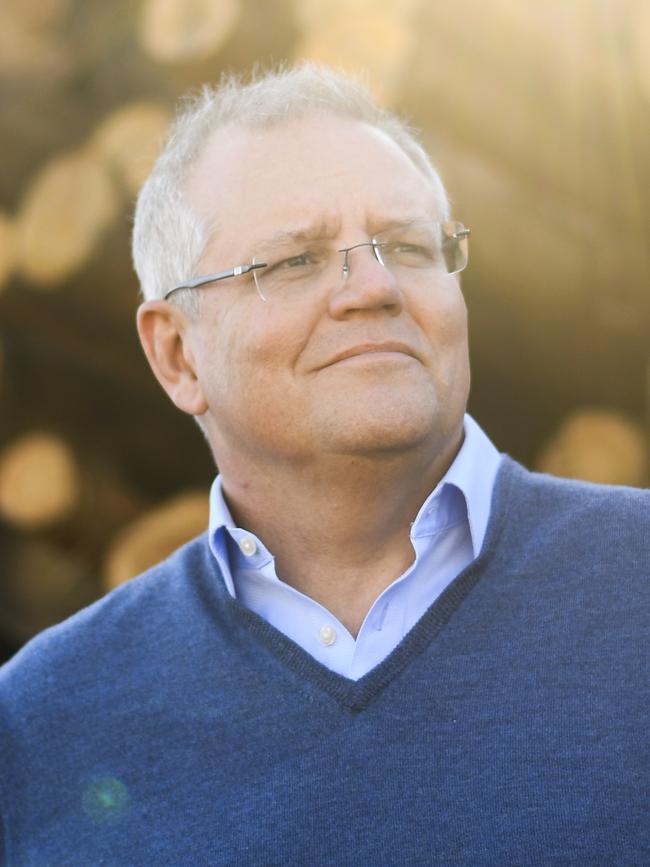
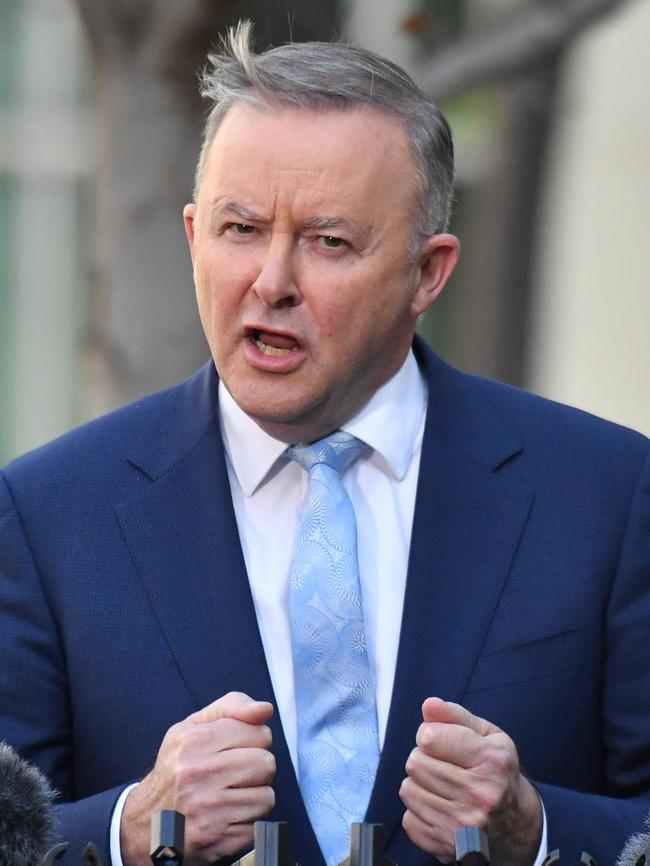
Mr Albanese said Labor would support the government on new funding mechanisms to support the development of CCS technologies but remained opposed to the inclusion of CCS projects through the Australian Renewable Energy Agency (ARENA) and Clean Energy Finance Corporation.
The opposition will also reject any move towards a domestic nuclear power industry, despite calls from the Minerals Council of Australia to use small modular reactors to drive down emissions.
Mr Albanese said that for negotiations on a bipartisan energy policy to “have a credible chance of success”, Labor wanted the government to “re-fund ARENA” and not allow the opposition’s target for net zero emissions by 2050 to derail discussions.
“The two parties have different views regarding emission reduction targets and agreement on targets is not necessary to deliver an enduring national energy policy and provide investor certainty,” he said.
“Indeed scalability of ambition is seen by industry as a necessary feature of any enduring bipartisan energy policy.”
Mr Albanese said the technology road map did not “represent a new national energy policy that will deliver the technological change that it espouses”.
“We have an opportunity to move beyond past partisan approaches to energy policy, to draw on the community’s clear desire for more bipartisan approaches to difficult policy areas and to finally deliver an enduring, effective and bipartisan energy policy for Australia,” Mr Albanese said.
Since 2007, Labor and the Coalition have been gripped by splits over energy policy that helped to terminate the leaderships of Malcolm Turnbull, Kevin Rudd and Julia Gillard. For a decade, business leaders have demanded stable energy policy, warning it was hindering investment in Australia and having a negative effect on emissions reduction.
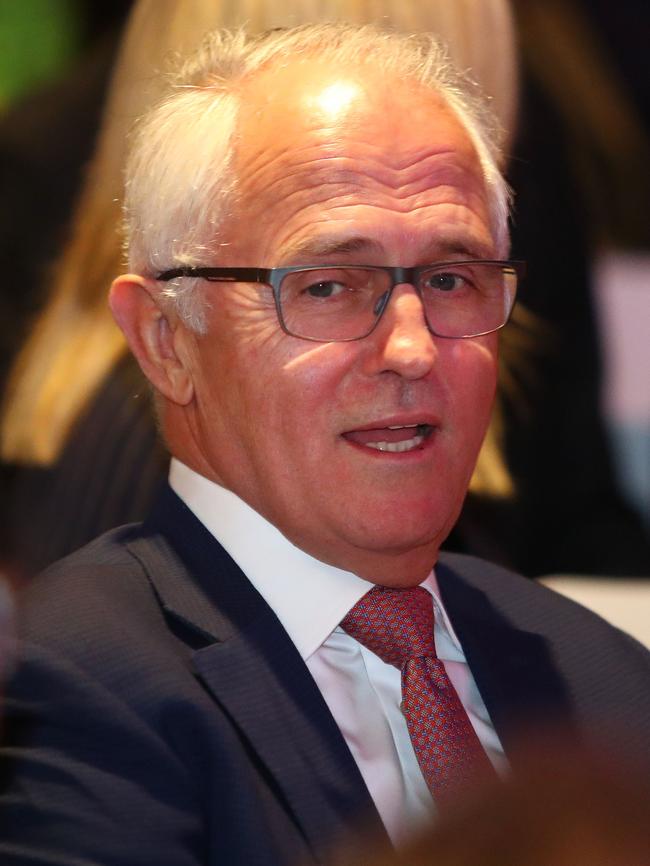
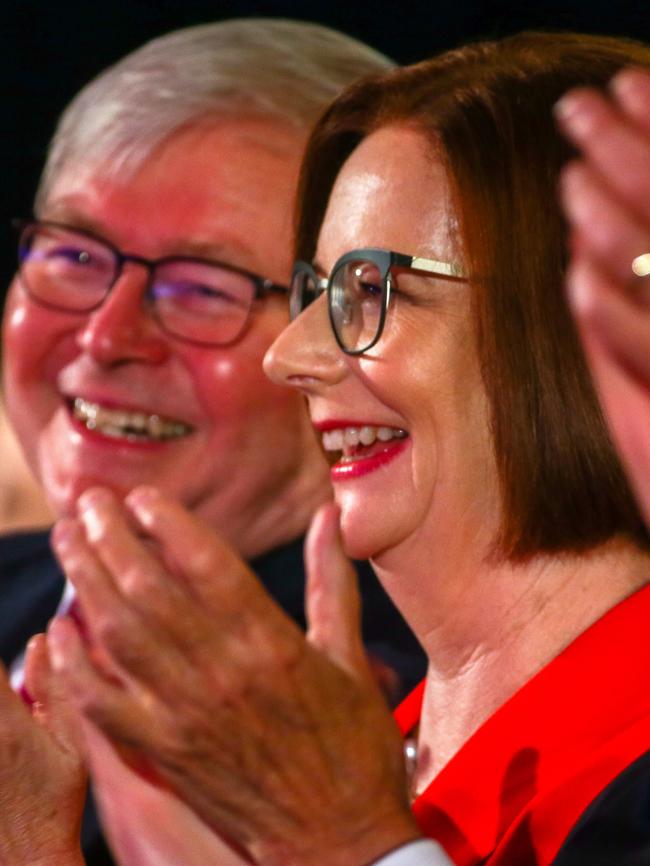
This month, Mr Fitzgibbon poured doubt over whether Labor would win the next election if it adopted more ambitious medium-term climate change policies than the Coalition. “We’ve had a number of elections where the Labor Party has attempted to sell a more meaningful climate change policy to the electorate, and we’ve lost,” Mr Fitzgibbon said.
“We can keep losing and remain in opposition. And guess how much you get to do on climate change policy if you are perpetually in opposition? Zero.”
The Morrison government will release its long-term emissions reduction strategy ahead of next year’s UN Climate Change conference in Glasgow.








To join the conversation, please log in. Don't have an account? Register
Join the conversation, you are commenting as Logout